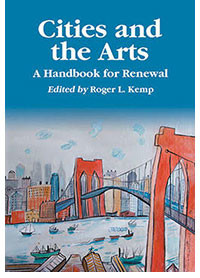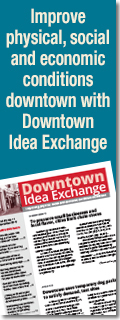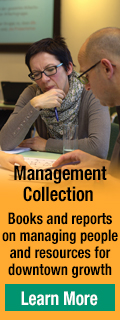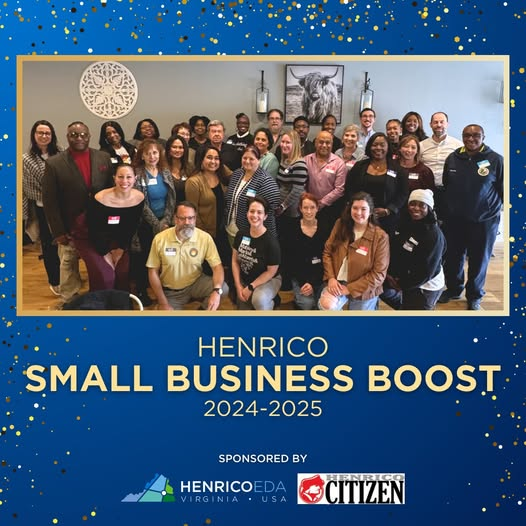Read and share

|
February 26, 2026 Media Partnerships Support Small Businesses
Funded by the EDA, the Boost program provided small businesses with complimentary, three-month, advertising packages. Nearly 90 percent of Boost participants reported that they were pleased with the program, with most gaining new customers. Due to its success, Boost was expanded to double the number of program participants. For 2026, 10 small businesses will receive free six-month advertising and marketing packages, valued at $8,000 each. Packages include advertising exposure on HenricoCitizen.com and in the Henrico Newsflash email update, as well as sponsored content articles, a direct eblast to more than 27,000 people, inclusion in social media promotions, and more. Small business support programs are covered regularly in the pages of Downtown Idea Exchange newsletter. Click below to learn more about Downtown Idea Exchange and other resources for revitalizing downtowns and commercial corridors. 
7" x 10", softcover, 288 pages, $39.95.
Recommended ReadingCities and the Arts: A Handbook for RenewalCities are increasingly focusing on art, culture, and entertainment to revitalize their downtowns and enhance the local economy. In Cities and the Arts, editor Roger Kemp has gathered articles from a wide range of sources to demonstrate that when community investment focuses on the arts, business, commerce, and tourism will all benefit. The centerpiece of the book is the section on best practices. Here, readers will find 35 case studies detailing how cities and towns are using the arts to stimulate downtown and neighborhood revitalization. Examples include:
The cities covered range from populations of just over 11,000 in Madison, IN, to over three million in Los Angeles. But the majority are midsized cities demonstrating successful practices for revitalizing downtown with the arts. Cities and the Arts is just one of the many books on Economic Development available from the Downtown Development Center. |

 |
 A partnership between the Henrico Economic Development Authority and the local online publication, the Henrico Citizen is boosting businesses in the small Virginia city.
A partnership between the Henrico Economic Development Authority and the local online publication, the Henrico Citizen is boosting businesses in the small Virginia city.